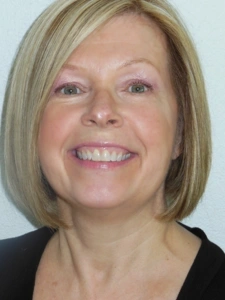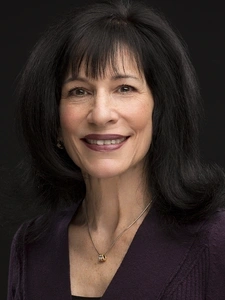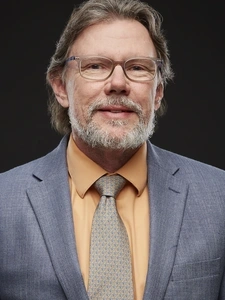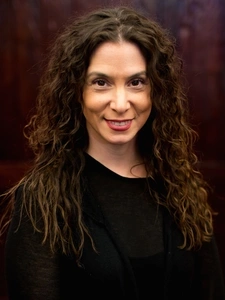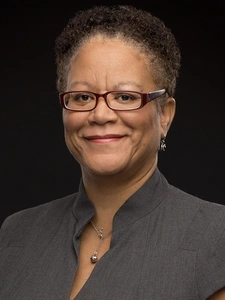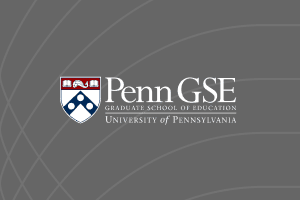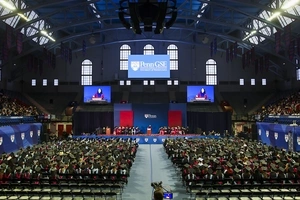Empowering future counselors to transform lives and communities.
The School and Mental Health Counseling, M.S.Ed. (SMHC) program is tailored for dedicated professionals ready to make a difference. Whether you aim to support students in educational settings or provide mental health services to diverse populations, this program offers the essential knowledge, skills, and field experience you need to elevate your career and change lives. We’re committed to fostering a community of counselors who are prepared to deliver meaningful impact wherever they go.
Plus, 93% of Penn GSE's counseling graduates pass the National Counselor Examination for Licensure on their first attempt.
Join an MPCAC-accredited ProgramThe M.S.Ed. Executive Program in School and Mental Health Counseling at University of Pennsylvania is accredited by the Masters in Psychology and Counseling Accreditation Council (MPCAC) for the period of June, 2025 through June, 2033. |
Program Details
-
Summer Entry Term
-
Executive Enrollment Format
-
2 Years Duration
-
On Campus Modality
Overview
The mission of the School and Mental Health Counseling, M.S.Ed. program is to provide the highest level of counselor preparation for individuals seeking to work in schools, community mental health agencies, universities, or private practice. The program also serves as a solid foundation for those interested in pursuing doctoral-level study.
The program is organized around two tracks:
- Mental Health Counseling Licensure (LPC) and School Counseling Certification
- Mental Health Counseling Licensure (LPC)
This allows students to tailor their educational experience according to their career goals and professional aspirations.
Using an executive-learning format, the program allows students to earn their degree while maintaining full-time employment. Students attend monthly weekend classes for two years and participate in one week of intensive study during each of the two summers. Upon completion of the program, graduates will be equipped for roles such as school counselors, college and career counselors, or mental health counselors in schools, community agencies, or hospitals.
Take the Next Step
Application Requirements and Deadlines Tuition and Fees Financial Aid
STEM OPT Extension EligibleThis STEM-designated master’s program provides students with an F1 status the opportunity to work in the U.S. for up to 3 years after graduation—1 year of OPT plus a 2-year STEM OPT extension. |

What Sets Us Apart
“I would come into work the Monday after a program weekend energized because I was able to put what I had learned Friday, Saturday, and Sunday into practice. I saw the impact I was having.”
Xavier Brown, M.S.Ed., GED'17
Admissions Events
-
Time: 12:00 PM - 1:00 PM EST | Location: Online
-
Time: 9:00 AM - 10:00 AM EST | Location: Online
-
Time: 12:00 PM - 1:00 PM EST | Location: Online
Curriculum
The School and Mental Health Counseling, M.S.Ed. curriculum comprises 20 course units. The program is built on the faculty's contention that school and mental health counseling need to be better integrated in order to best serve children, youth, and their families, particularly those who present complex needs in both school and community settings.
Our cohort model program allows students to work closely with their peers through a sequentially structured curriculum of courses and field training. The instructional methods include an inquiry-based approach, engaged scholarship, and problem-solving within context. Supervised field experiences are integral to the program.
For course descriptions, visit the School and Mental Health Counseling, M.S.Ed. program in the University Catalog.
Please note that the part-time plan of study option is only available to Penn employees.
Do you have questions about the plan of study?
We're happy to help! Contact the Associate Director, Frank Wenger, frankw@upenn.edu.
*Course dates will be confirmed prior to the beginning of each new academic year.
Monthly Weekend Classes: Typically held one weekend each month, including meal breaks (no classes in June).
- Fridays: 3:00 PM – 9:00 PM
- Saturdays: 8:30 AM – 6:00 PM
- Sundays:
- Fall: 8:30AM – 6:00 PM
- Spring: 8:30AM – 4:30 PM
Summer Intensive: A nine-day session with daily classes from 8:30 AM – 6:00 PM, including meal breaks.
| 2025-2026 Cohort Schedule | ||
|---|---|---|
| Summer | Fall | Spring |
| July 19-27 | Sept. 5-7 Oct. 3-5 Oct. 24-26 Nov. 14-16 Dec. 12-14 | Jan. 9-11 Jan. 30–Feb. 1 Feb. 20-22 Mar. 13-15 Apr. 10-12 May 1-3 |
| 2026-2027 Cohort Schedule | ||
|---|---|---|
| Summer | Fall | Spring |
| July 17–26 | Sept. 11-13 Oct. 2-4 Oct. 23-25 Nov. 20-22 Dec. 11-13 | Jan. 8-10 Jan. 29-31 Feb. 19-21 Mar. 12-14 Apr. 2-4 Apr. 30–May 2 |
| 2027-2028 Cohort Schedule | ||
|---|---|---|
| Summer | Fall | Spring |
| July 17–25 | Sept. 10-12 Oct. 1-3 Oct. 22-24 Nov. 19-21 Dec. 10-12 | Jan. 14-16 Feb. 4-6 Feb. 25-27 Mar. 17-19 Apr. 7-9 May 5-7 |
A two-semester field placement during each year in the program provides the opportunity for students to learn and practice counseling skills in a professional and supportive environment. Students are matched with placements from our online site placement database of high-quality training sites, including mental health centers, schools, hospitals, and colleges. Students receive supervision both on-site and in a small seminar group format.
In Year One, the Practicum placement requires a total of 100 hours in the field, usually a site commitment of 5 hours weekly.
In Year Two, the Internship placement requires 600 hours in the field, based on the student's choice of program emphasis. This commitment is approximately 20 hours per week over the course of the year.
Students who are currently teachers or work in a mental health-related site and wish to use their place of employment for the field training must secure approval both from their employers and the counseling program placement coordinator.
National Counselor Exam (NCE) and National Clinical Mental Health Counseling Exam (NCMHCE)
Toward the end of their second year in the program, students will sit for either the National Counselor Exam (NCE) or the National Clinical Mental Health Counseling Exam (NCMHCE), which the program administers at Penn GSE.
Passing the NCE exam grants students the status of eligibility as a PA Licensed Professional Counselor (LPC) and a National Certified Counselor (NCC) once their 3,000 hours of post-master’s supervised counseling work is completed. The NCC credential indicates that the program the student graduated from has been approved by a national credentialing board.
The National Board for Certified Counselors (NBCC) defines this credential as “National Certified Counselors (NCC) are board certified counselors who offer the highest standards of practice because they have met stringent education, examination, supervision, experience, and ethical requirements.”
Important Update: The NBCC has recently made changes to the NCC program, and the last application cycle for students in our program will be fall 2026. Following this date, students will sit for their licensure exam after graduation but without the NCC designation.
Note: Each state has its own licensing requirements so please check with your state board for both the internship licensing requirements and exact number of required post-master's hours.
Toward the end of the program, students sit for the PRAXIS School Counselor Exam (5422). Students can choose from a variety of testing sites both in and out of Pennsylvania.
Students who pass this exam and complete all the coursework and internship requirements are eligible for certification as an Elementary and Secondary (PK-12) School Counselor (Education Specialist I) in the Commonwealth of Pennsylvania and can be certified as PreK-12 school counselors.
Students living outside of Pennsylvania are well-positioned to earn similar certification in other states. However, they must confirm their specific state’s certification requirements prior to beginning their internship field experiences to ensure they meet all necessary criteria for licensure.
| Goals / Needs | Professional Counseling, M.Phil.Ed. | School and Mental Health Counseling, M.S.Ed. |
|---|---|---|
| Obtain Licensed Professional Counselor (LPC) eligibility in PA | ✓ | ✓ |
| Obtain both PA School Counselor Certification & LPC eligibility in PA | ✓ | ✓ |
| Attend school full-time Monday through Friday | ✓ | |
| Recent graduates (1–3 years) new to the workforce and professional training | ✓ | |
| International students unable to work full-time and/or off-campus | ✓ | |
| Attend school while working full-time | ✓ | |
| Attend school solely in the summer and on weekends | ✓ | |
| Be part of a cohort of working professionals | ✓ | |
| Current professionals transitioning into counseling | ✓ | |
| Students with a minimum of 3–5 years post-baccalaureate work experience | ✓ |
Outcomes
Graduates are prepared for a variety of jobs in the field of mental health and school counseling. They go on to work as certified school counselor in elementary or secondary schools; a therapist in mental health agencies/clinics, residential settings, behavioral health programs, drug & alcohol rehabilitation, private practice, and hospital-based programs; and in many other areas of leadership in both school and clinical care settings.
Alumni Careers
- PreK-12 school counselors, School District of Philadelphia
- Associate Director of Counseling, Freire Charter School
- Therapist, Starting Point Inc. of New Jersey
- Licensed Psychotherapist, Remedy Treatment Center, Inc.
- Licensed Professional Counselor (LPC) & Adjunct Instructor, Jefferson University Hospitals
- Mental Health Counselors, NHS Services
- Licensed Psychotherapist, private practice in mindfulness-based psychotherapy
- Doctoral Student, St. Joseph’s University
Apply Now
A graduate degree from Penn GSE opens up whole new worlds, intellectually as well as professionally. If you are a passionate, innovative, impactful leader—or aspire to be one—Penn GSE is the place for you.
Affiliated Faculty
-
Shakesha Anderson Clarke
Contact Us
Do you have questions about our programs, admissions requirements, or financial aid? We're here to help!

